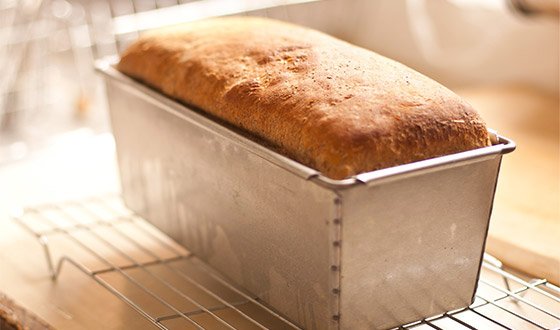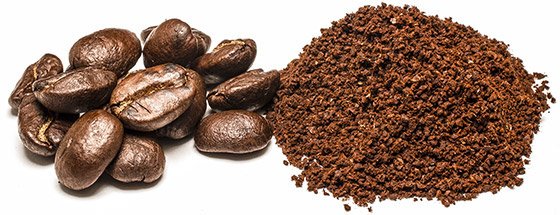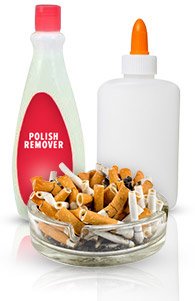Few things in life are as glorious as that first sip of fresh coffee on a dreary morning. For many of us, the highlight of the day is when we lift our mug from desk to lips and then repeat for reps.
By the same token, few beverages engender such conflicting advice when it comes to health and fitness. One minute you'll read that coffee protects against metabolic syndrome, boosts performance in endurance sports, promotes fat loss, and fights dementia, to boot! But by the time you've taken your next sip, you've read that coffee consumption is also linked to increased risks of heart disease, gastrointestinal issues, and cancer.
Plus, like nicotine and sugar, caffeine is physically addictive, as anyone who's suffered from coffee withdrawal headaches knows. That means trouble is abrew, right?
Just hold on a second here. What should you believe?
Clearly, there are grounds for debate here: Is coffee poison or a health tonic?
Let's examine some of the major claims and determine if they are fact or fiction.
Claim 1 There's no definitive research on whether coffee is
healthy or unhealthy
Status: Fact
When looking at the entire body of research on coffee, this first point is perhaps the most important to drive home, especially as you read the rest of this article. Quite simply, there's no consensus on coffee (or most foods, for that matter) as a "health" food.
Look closely and you'll see observational literature on coffee's benefits that associate it with lower body weight and a lower incidence of non-alcoholic fatty liver disease. It also offers protection from type 2 diabetes and neurodegenerative diseases like Parkinson's.
Still more studies highlight coffee's link to increased risk of heart disease and gastrointestinal funk. What's the deal? The nebulous conclusions on coffee's safety are such for a couple of key reasons:
-
The preponderance of coffee studies are actually caffeine studies, not studies of coffee itself. Coffee contains acids, oils, and varying levels of antioxidant compounds that interact with each other and your body in ways that cannot be accurately controlled nor be directly compared to the intake of caffeine in its purest form.
-
Your ability to metabolize caffeinated coffee depends in part on genetic factors, specifically a gene called CYP1A2, which governs how well or quickly your body can remove coffee and caffeine.
If you are someone who experiences a feel-good boost in energy, you may benefit most from coffee and caffeine. It is also in these particular coffee drinkers that researchers find protection from heart disease.
Based on the scattered evidence, it seems the "slow metabolizers" might do more harm (e.g. higher chance of heart attacks, intense jitters, and high blood pressure) than good from regular coffee consumption.

-
The caffeine in coffee interacts with a number of neurotransmitters and hormones in the body, resulting in varied responses from study to study and person to person. These, of course, depend on the amount of coffee and caffeine consumed, what is eaten with the coffee, and the person's body.
-
Caffeine content varies depending on where you get it (McDonalds versus Starbucks), what beans you use (arabica versus robusta), the roasting temperature, and how the beans are brewed. All these variables can influence outcomes depending on what the researchers look at.
Currently, it's a tall order to conduct coffee studies with standardized batches whose chemical compounds are exactly the same, due to variations in climate, harvesting cycles, processing, roasting, and brewing.
-
Finally, there doesn't seem to be a standard as to what is considered low, moderate, or high intake of coffee. The four daily cups that would send jitters through one person might just be a warm-up for someone else.
As you can see, there's no way to objectively declare beyond the shadow of a doubt that coffee is a miracle drug sent from the heavens for everyone. Research supports that coffee still boasts a rich antioxidant profile (even more than dark chocolate) and other bioactive compounds, at least for people who metabolize coffee and caffeine well.
Basically, if you already drink coffee and don't feel lousy afterward, fill up and enjoy your cup (or more) of Joe! If not, just dial it back but still enjoy that occasional cup.
Claim 2 Coffee helps with fat loss
Status: Fact
Coffee lovers looking to get shredded, rejoice!

When coffee enters the body, it means bad news for excess body fat. Brace yourself, it's about to get a little nerdy: The caffeine from coffee induces a fat-releasing effect called lipolysis, in which fat molecules within fat stores are cleaved into free fatty acids (and glycerol). As a result, you have a bunch of free fatty acids shooting around in your bloodstream, injecting you with that sensation of being able to punch through brick walls.
Well, now you have all these liberated free fatty acids that your body can use—instead of carbs or lean muscle—to fuel your workout or whatever task is at hand. The combination of a hard workout and the inflated number of free fatty acids result in an increase in fatty acid oxidation. So caffeine promotes fat burning (yay!).
OK, then why isn't your average coffee guzzler already lean and on the cover of fitness magazines? One possibility is that they're taking in too much caffeine, which can promote chronically elevated levels of cortisol (the anti-fat loss hormone, in a nutshell) and increasingly dull the effects of caffeine.
A more likely reason is that many coffee drinkers dump milk and every variety of sugar (double chocolate chip cookie dough caramel hazelnut delight Frappuccino, anyone?) into their drink. While tasty, these caloric bombs simply blunt fat loss and negate coffee's benefits in surreptitious ways.
Yet another possibility is that people simply don't make use of the free-floating fatty acids, which get recycled back into fat depots, if left unused, after some time.
Now you may point out that caffeine should get the credit for weight loss, not coffee as the original claim says. But actually, decaffeinated coffee has also been associated with weight loss. Further, a study on mice looked at whether regular coffee consumption is correlated with reduced risk of developing type 2 diabetes.
Although the coffee and caffeine extract group both experienced attenuated fat gain, the "real coffee" group saw a more pronounced expression of hunger-regulating hormone leptin and effect on the "bad" visceral fat stores. Based on this, it's worth mentioning that consuming the whole coffee (as opposed to isolated extracts) exerts other supplemental health benefits on the whole body.
What can you take away from this? To take full advantage of coffee's fat burning effects, you should avoid pumping your coffee full of cream and sugar, and move around (stand up and walk around) as you drink it. I'm sure you can walk and drink coffee at the same time.
Claim 3 Coffee lowers insulin sensitivity
Status: Fact
One of the reasons some experts honk the "coffee = bad" horn is that it has been shown to blunt insulin sensitivity, which makes your body less efficient at handling rising blood glucose levels. Take note that these levels differ from insulin secretion from the pancreas, of which neither caffeine nor coffee has an effect. Out of context, this sounds all sorts of scary for people who eat high amounts of carbs and fats (in other words, a pro-diabetic diet), but it actually makes a lot of sense.
Drinking coffee initiates a cascade of physiological effects, one of which is an increase in adrenaline, the "fight or flight" hormone. This multifunctional hormone helps kickstart lipolysis, which, as mentioned previously, is the release of free fatty acids from body fat. With all the free fatty acids in circulation, your body lowers insulin sensitivity in order to burn them. This whole chain of events is only temporary, and it's been shown that slurping real coffee reduces this already short-lived effect.

Interestingly, the effect on insulin sensitivity doesn't seem to pose a problem for habitual coffee drinkers, since the adrenaline buzz is lessened with constant consumption. Sure enough, one study gave overweight coffee drinkers five more cups of coffee per day and measured their biological risk factors for type 2 diabetes. Their insulin sensitivity stayed the same, and their improved biological markers indicated a lowered risk of type 2 diabetes. Clearly, the long-term benefits outweigh any short-term increase in fasting blood glucose here.
The java junkie operating in the real world still might want to moderate his or her carb intake when drinking coffee. That's not to say you shouldn't eat any carbs; it simply means you probably shouldn't cram multiple crullers and croissants into your gullet with your coffee.
Claim 4 Coffee dehydrates you during exercise
Status: Fiction
It's no secret that drinking coffee results in frequent bathroom trips. If you're losing water through increased urination and exercise-induced sweat loss, the combination should turn the coffee-guzzling exercise enthusiast into a life-sized prune.

In theory, that sounds (somewhat) sensible, yet coffee is the beverage of choice for most athletes right before exercise or competition. Which raises a question: Why don't they all keel over from dehydration and overheating?
In reality, myriad studies unequivocally lay this notion of coffee—and exercise—induced dehydration to rest. A research review by the American College of Sports Medicine found that caffeine neither reduces hydration nor causes any electrolyte imbalances.
A recent study that compared the chronic effects of coffee consumption with water even concluded that coffee—when consumed in moderation (about four cups per day, in this case) by habitual coffee drinkers—has the same hydrating effects as water. This water just happens to be brown and delicious.
Claim 5 Coffee can improve your athletic performance
Status: Fact
That person sipping on his Starbucks in the gym may know a secret you don't: Coffee often leads to increased endurance.
That's because the physiological effects from caffeine positively impact intense forms of physical exertion for the most part. Caffeine raises adrenaline, but more important, it stimulates the central nervous system and thus increases your threshold for pain, allowing you to push even harder and delay your time to exhaustion. Something that might've otherwise been 95 percent effort might feel like 85 percent.
Quite simply, caffeine makes exercise more tolerable, lowers your perceived level of effort, and stokes endorphin expression, even in trained athletes and regular coffee drinkers. Most coffee drinkers will feel the effects with approximately two Grande-sized Starbucks cups. For others who don't normally drink coffee, sometimes one cup is enough to squeeze out immediate physiological benefits.

These benefits apply mostly to endurance sports. What about anaerobic work such as weight lifting and sprinting? One review said caffeine might improve muscle endurance in the lower body but, overall, had limited carryover in anaerobic activity. Others seem to suggest positive anaerobic exercise-related benefits. The jury remains out.
In almost every study that examined the effects of caffeine on performance, the subjects worked to exhaustion. In other words, if you're an elite sprinter looking to shave off seconds, caffeine could lend a hand. On the flipside, your average gym bro probably won't tear up the treadmill at supersonic speeds.
The takeaway here, however, is that if you already drink coffee before a workout—and you feel like it helps—keep drinking it.
Claim 6 Coffee has a bunch of mold and toxins
Status: Fact
It's true, coffee consumption does expose you to some toxins. Yum!
I kid. The dastardly culprit is orchratoxin A, a carcinogenic mycotoxin born out of mold found on stored coffee beans. The mycotoxin can potentially withstand temperature extremes on both ends of the spectrum. Processing, roasting, and grinding supposedly only further fuse it into your finished cup (egad!). You might be inclined to trash all your coffee and abstain from coffee now, but slow down there, Skippy.
The amount of mycotoxins in the average cup of roasted coffee is probably too low to worry yourself over, even if you're knocking back multiple cups every day. In addition, protective substances in the coffee—cafestol and kahweol—act as anti-mycotoxin police against the pro-carcinogenic effects of the mycotoxins. Further, they can be found in a variety of common foods, including milk, cereal, wine, and peanuts. Coffee isn't even the worst offender of mycotoxins in the world.

A number of sources make highly idealistic recommendations for minimizing the level of mycotoxins, such as buying only single-origin, wet-processed beans that are grown at higher altitudes. While you can certainly take extra precautions, keep in mind that many of the scientific studies showing a positive correlation between coffee and health were based on people drinking regular old coffee.
Could there have been more markers of improved health had the subjects drank the highest-quality, wet-processed beans handpicked by trained Arabian monkeys who somehow found themselves at the perfect altitude in Central America? Perhaps, but it's virtually impossible to hold each and every batch of coffee to a standardized level of quality.
If you're especially wary, err on the side of caution and buy organic Fair Trade beans from reputable sources.
Claim 7 Decaf coffee doesn't give you the same health benefits as caffeinated coffee
Status: Fiction
Good news for people who enjoy the taste of coffee but can't handle caffeine.
Decaffeinated coffee's nutritional firepower is not weakened by caffeine's absence. That's because the perks of drinking coffee can be mostly attributed to the antioxidants, in the form of polyphenols, not the caffeine itself.

Furthermore, a study published in Nutritional Neuroscience claims that decaffeinated coffee may help with improving brain metabolism in mice with type 2 diabetes. The researchers found that the mice supplemented with decaf coffee were better able to metabolize glucose for cellular energy in the brain.
Despite its pros, decaf's legacy hasn't always been first-rate. Traditional decaffeination processes generally use lower-quality beans and involve chemical solvents including ethyl acetate and methylene chloride. Ethyl acetate is found in such common products as nail polish remover, cigarettes, and glue—not exactly the most appetizing items.
If you're keen on avoiding these harmful solvents, you could look into decaf beans that have been Swiss Water washed.
Claim 8 Instant coffee is just as good as drinking any coffee
Status: Fiction
Instant coffee (which includes certain brands from the ever-popular Keurig machine) is a great reason to get snobby about high-end coffee from specialty shops. If you were to pit fresh Joe against instant Joe, fresh Joe would punch the daylights out of instant slop in almost every aspect.
I dare you to argue that a convenient-but-adulterated drink with coffee-like aroma and synthetically infused caffeine trumps the whole foods drink that is freshly brewed from whole coffee beans.

The manufacturing process of instant coffee leads to the formation of a chemical compound called acrylamide. Early research on animals has indicated that acrylamide may be carcinogenic, neurotoxic, and harmful to a person's reproductive system.
For now, it's inconclusive whether ingestion of acrylamide at current levels would actually doom humans to disease.
Still...that doesn't correct the important matter of taste...
Bottom Line Figure Out Where You Stand
There's no doubt many folks can reap plenty of health benefits from coffee. Coffee isn't for everyone, and it's certainly no cure-all. Many of the perceived benefits or detriments tend to be exaggerated in individuals who aren't accustomed to multiple cups of coffee. To reiterate, some people respond positively to coffee intake, but there are also negative responders or even non-responders.
If you love coffee like I do, simply ask yourself how you feel physically, mentally, and emotionally after you drink it (or if you don't, in many cases). As with anything you eat or drink, the daily dosage matters.
One or three cups of coffee won't hack your health away, but as with any health-related effort, it's the long-term habits that matter most as you meander down your chosen path to an optimum quality of life.
Are you a coffee lover? Let's talk shop in the comments below! Tell us about your favorite places to buy a cup of coffee.
References
- Carlsen MH, et al. The total antioxidant content of more than 3100 foods, beverages, spices, herbs and supplements used wordwide. Nutr J. 2010 Jan 22;9:3.
- Cornelis MC, et al. Coffee, CYP1A2 geotype, and risk of myocardial infarction. JAMA. 2006 Mar 8;295(10):1135-41.
- Gargas ML, et al. Acrylamide: consideration of species differences and nonlinear processes in estimating risk and safety for human ingestion. Food and Chemical Toxicology, 2009;47:760-768.
- Grandjean AC, et al. The effect of caffeinated, non-caffeinated, caloric and non-caloric beverages on hydration. J Am Coll Nutr. 2000 Oct;19(5):591-600.
- Killer, Sophie C., Blannin, Andrew K., Jeukendrup, Asker E. No evidence of Dehydration with Moderate Daily Coffee Intake: A Counterbalanced Cross-Over Study in a Free-Living Population. Journal Plos One 2014 Jan 9;doi: 10.1371.
- Matsuda, Y., et al. Coffee and Caffeine Improve Insulin Sensitivity and Glucose Tolerance in C57BL/6J Mice Fed a High-Fat Diet. 2011 Dec 7;doi:10.1271.
- Muley A., et al. Coffee to reduce risk of type 2 diabetes?: a systematic review. Curr Diabetes Rev. 2012 May;8(3):162-8.
- Smith, Laura E., et al. Food Chain Mycotoxin Exposure, Gut Health, and Impaired Growth: A Conceptual Framework. Adv Nutr July 2012. Vol.3:526-531.
- Wedick NM, et al. Effects of caffeinated and decaffeinated coffee on biological risk factors for type 2 diabetes: a randomized controlled trial. Nutrition Journal 2011 Sep 13;10:93.
- Zain, Mohamed E. Impact of mycotoxins on humans and animals. Jour Saudi Chem Soc 2011 April;15(2):129-144.
Stephanie Lee is an editor at Bodybuilding.com and loves her coffee. Follow her exploits on Twitter and her YouTube channel!
